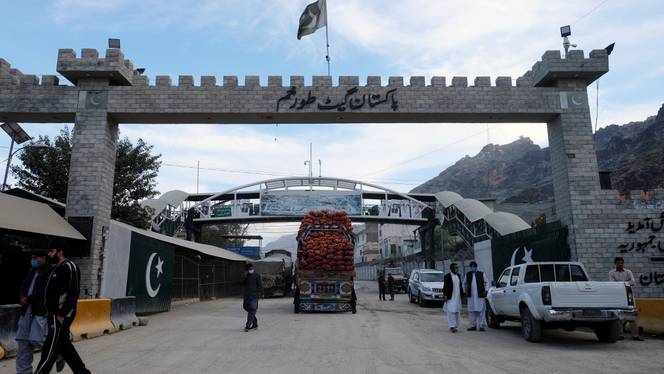The Pakistan-Afghanistan border at Torkham remained closed for the second straight day on Sunday, causing significant disruptions. The closure has affected both trade and travel, creating serious challenges for people on both sides of the border. According to reports, the closure was a result of rising tensions between the two nations.
Hundreds of passengers, including women and children, found themselves stranded at the border. Many had to spend the night there in uncertain conditions, with no clear indication of when the crossing would reopen. Despite the large crowd waiting outside the immigration centre, there was no official word on when movement would resume.
The closure of the Torkham border has had a direct impact on trade. Trucks carrying goods are stuck on both sides, halting the flow of essential supplies. This has led to substantial financial losses for businesses and traders. The prolonged stoppage has left transporters frustrated and worried about the economic consequences.
Qari Nazim Gul Shinwari, a member of the Torkham Customs Association and a leader of the Jamiat Ulema-e-Islam (JUI), spoke out about the situation. He emphasized that the frequent closure of the border causes significant damage to both countries. He pointed out that millions of rupees worth of losses have been incurred due to the border’s closure. Shinwari urged both governments to resolve their differences through dialogue and called for the immediate reopening of the border, especially for women, children, and patients who need to cross.
The closure was prompted by rising tensions between Pakistani and Afghan forces. Afghan forces had begun constructing a bunker near Zero-Point, a disputed area close to the border. The Pakistani Frontier Corps responded, and both sides reinforced their positions, increasing the likelihood of an armed clash. As a precaution, Pakistani officials relocated customs, immigration, and police personnel from the Torkham Bazaar to Landikotal.
The Torkham border, a critical trade route, has experienced several such disruptions in the past, which have severely impacted economic activities. With both sides in a tense standoff, the border’s closure continues to hinder vital trade between the two countries


